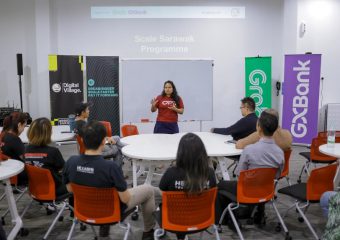For some of you fresh graduates, there is a high chance that you may not be able to land a job that’s related to what you studied in college or university.
It’s actually not uncommon to have a fulfilling career that you didn’t plan for when you were completing your diploma or degree, so don’t stress out if your first job is not what you envisioned.
While some may be lucky enough to land a job that fits perfectly within their field of expertise, others may end up getting hired for a role that is completely different from their expectations.
If you fall into the latter category, here are some of our thoughts on the matter.
Accept the change
First of all, be grateful for the job opportunity offered to you and realise that your employers acknowledge your capabilities enough to trust you to fill a position that is not related to your field of study.
You may not realise it at first, but if you give it your best shot, you may find that the job could suit you better than you imagined.
And even if your field of study is different from the job scope at hand, always remember that having good work ethics, being creative and innovative, and able to be a team player will always be appreciated in any work environment.
Willing to work your way up
As you may have a lot to learn in an industry that you are not familiar with, upon joining you will have to start from the lower rungs of the organisation.
Always keep in mind that you have a lot to learn and also need to gather as much experience as possible to be more competent at your job.
It may take a few years, but if you have the determination and are willing to work hard, your efforts will not go unnoticed by your supervisors.
Leverage on transferable skills
As mentioned above, in any industry you join, if you have good work ethics and can be a team player, you would have an upper hand in most organisations.
Apart from those attributes, in order to make you stand out in an industry that is unrelated to your field of study, you should focus on your transferable skills.
These could include leadership skills, written and verbal communication skills, organisational and time management skills, and also research and analytical skills.
This is a weekly column by SarawakYES! – an initiative driven by Faradale Media-M Sdn Bhd and supported by Angkatan Zaman Mansang (AZAM) Sarawak – to provide advice and stories on the topics of education and careers to support Sarawakians seeking to achieve their dreams. Join us on Facebook, Twitter, Instagram and YouTube.
This article first appeared on The Borneo Post, visit this link: http://bit.ly/2QwRNmh
Photo by Marc Mueller from Pexels.




